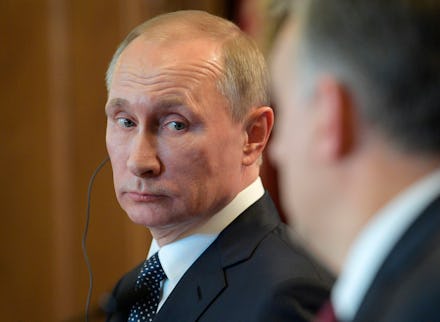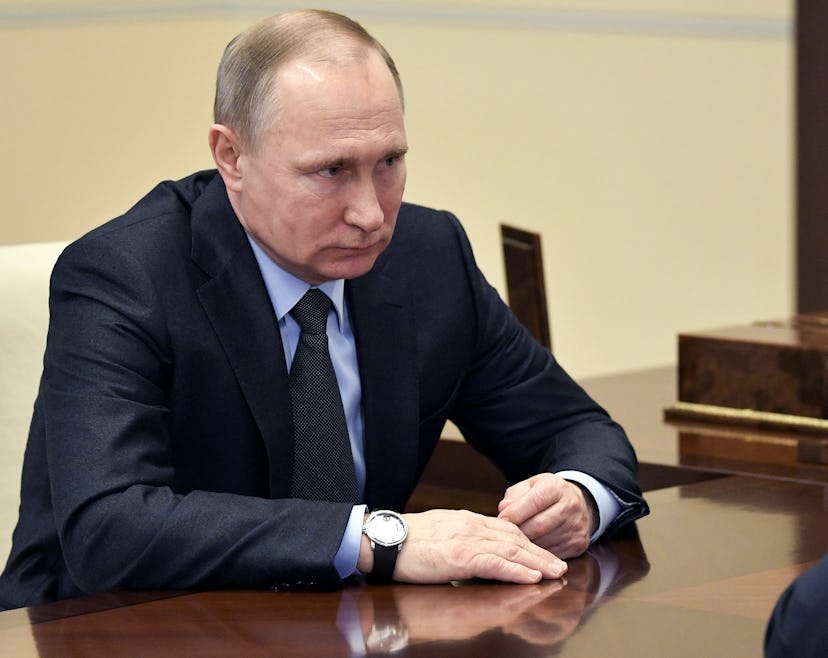Putin just signed a bill decriminalizing domestic violence in Russia

In a country where 12,000 women die annually from domestic violence, Russian President Vladimir Putin signed a bill making domestic abuse less of a crime.

The bill reduces domestic violence from a criminal offense to an administrative offense. A person's first offense is now less consequential and can be punished with compulsory community service, an arrest of 15 days or fewer or a fine of roughly $500, according to Jezebel. Repeat offenses would be considered criminal charges, but only if they occurred within the same year of the first offense, the Economist reported.
This essentially gives abusers a license to beat their family members once a year with little repercussions.
The bill was originally proposed to the Duma, the lower house of the Russian Parliament, by MP Yelena Mizulina — the same politician who sought to ban "gay propaganda" in 2013. Part of the reason for the bill, Mizulina claimed, is protecting Russia's children.
"How many more families will police departments 'work out' while the Duma holds a discussion regarding [the bill]?" Mizulina tweeted in January. "The Russian Federation has 20 million families with kids. They're all in danger!"
Mizulina also suggested a single act of domestic violence shouldn't land someone in prison for years.
"You don't want people to be imprisoned for two years and labeled a criminal for the rest of their lives for a slap," she said, according to the Independent.
The bill passed its first reading in the Duma with a sweeping victory, as 368 of 370 votes were cast in favor of the legislation. It passed its second reading Jan. 25, and Putin signed it into law Tuesday.
Women's groups are protesting the new law, but the government is making it difficult. As Jezebel reported, NewsRu wrote that authorities shot down a proposal for a rally to take place outside the capital building in Moscow's Bolotnaya Square, citing the space's inability to accommodate the 1,000 people expected to show up.
Activist Alena Popova protested the bill by herself, according to the Guardian, and said she was treated poorly by the people who passed her. Some claimed Popova was being paid by Western governments to protest, while others told her "some women deserved to be beaten."
Citing Russian government statistics, the Guardian reported that 36,000 women in Russia are assaulted by their partners daily and 26,000 children are beaten by their parents annually.
Feb. 7, 2016, 5:01 p.m.: This story has been updated.